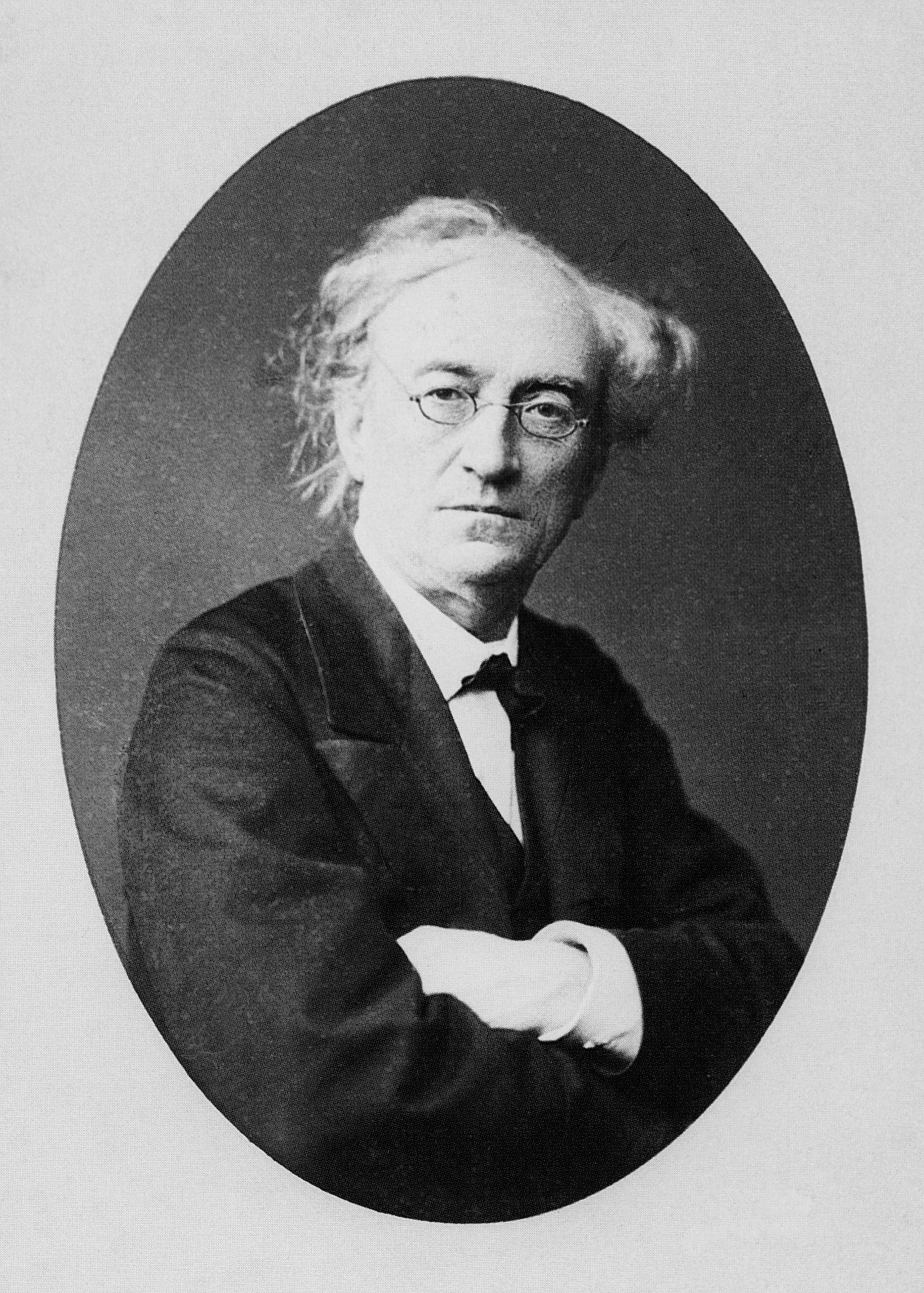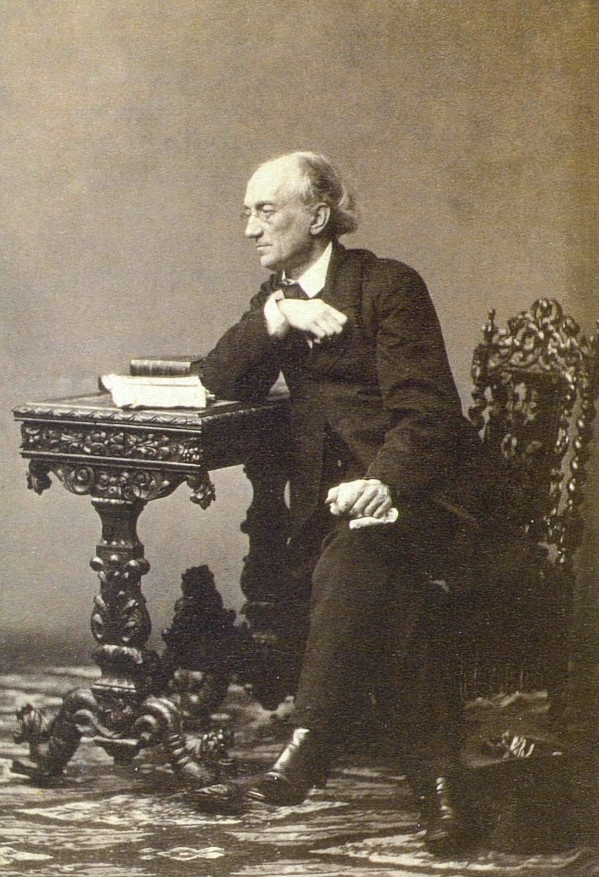Fyodor Tyutchev, whose 220th birthday we celebrate on 5 December, is completely our contemporary
Kirill Privalov
Even the wise Hipparchus of Nicaea, who lived on the island of Rhodes in the second century BC and was nicknamed “the father of ancient astronomy”, classified the stars according to their degree of brightness by rule of thumb, without having the slightest idea about a telescope. He called these categories “magnitudes”. The ancient Greek scientist identified six magnitudes in accordance with the brightness of the stars…
Russian literature, of course, includes fewer stars than in the vast sky. However, they also feature a number of magnitudes. Some geniuses like, say, Alexander Pushkin or Leo Tolstoy, shine through years and centuries with a powerful, bright light. Others flare up for only a few years – but sometimes even for a single moment – and fade, dissolve in the noosphere, leaving only ethereal memories in minds of forgetful descendants. Fyodor Tyutchev is one of the celestial bodies that give us inexhaustible, steady and warm light. He is not only a polyhistor – as a poet, diplomat, philosopher, publicist, – but is also relevant at any time. Tyutchev, whose 220th birthday we celebrate on 5 December (new style), is completely our contemporary. And it speaks for itself.
For some, Fyodor Tyutchev is a tough, merciless publicist generously attaching characteristics to others, bluntly calling the West’s attitude towards Russia “ugly and savage” and allowing himself to roast Tsar Nicholas I. For others, he is a magnificent lyricist (authoritative literary critic Eduard Grigorievich Babaev, one of my university mentors and professors, called him “a poet of complex associations”). And for some, he is also the hero of real historical, adventurous love stories throughout Europe. Almost until the very end of his life which lasted seventy years granted to him by God, Tyutchev was absolutely amorous and was very popular with women: as soon as he started talking…
For me, Fyodor Ivanovich remained, first of all, a brilliant, sophisticated wit, the author of timeless epigrams written in Russian and French (like Pushkin, Tyutchev wrote goldenly in these two languages), a storehouse of exquisite beaux mots – so in the Parisian manner they called bold and aphoristic statements in Saint Petersburg world. It is no coincidence that his friend and colleague in two fields, literature and diplomacy, Prince Pyotr Vyazemsky described the poet: “Tyutchev is a pearlmouth.”

And my love for Tyutchev began almost fifty years ago by accident to the point of banality (however, this is exactly how love often arises, isn’t it?).
On a frosty day, I was walking to the metro station along Stoleshnikov Pereulok in Moscow from my then editorial office and, as it has become a tradition for me, I decided to look into the second-hand bookstore at No. 28. Yes, the same one that stood opposite the wine store being extremely popular among Muscovites during the Soviet era… There, on the shelves forever saturated with the smell of old paper, sometimes you could find something interesting, some rare incunabula at the wonderful book connoisseur Nikolai Nikolayevich Lebedev.
Approaching the bookstore, I saw a real book market near the windows. Old books were laid out tight, like a tile cover, on boards mounted onto tripods directly in the snow. And reigning over them was a short bow backed old man in glasses held together with insulating tape, in a warm babushka tied crosswise on his chest and in a huge cap with earflaps flung down over his gray, never shaven chin. This was a legendary man. Second-hand book dealers called this veteran book archaeologist “Leo Cold” – and for good reason. He was the only one who sold books in Moscow in the open air, even in the most severe Epiphany frosts.
“Some guy is getting rid of a library that was stuck in the family inheritance,” Leo Cold explained to me as if I was his old contact. “Look here, young man! I’ll give you Tyutchev for a ruble…”
And he handed me, with freezing blue fingers peeking out from his striped mittens, a thin book, only sixty pages long, neatly bound in wallpaper and stitched with harsh threads.
I opened: Tyutcheviana. Epigrams, aphorisms and witticisms of F. I. Tyutchev. With old Russian letters: yat, fita and decimal i… With a foreword by Georgy Chulkov. Publishing house Kostry, Moscow, 1922.
I didn’t need to introduce Georgy Chulkov, one of the founders of literary life in the Russian capitals of the Silver Age, an excellent literary critic of the beginning of the last century. We were told about him – as the creator of the “theory of Mystical Anarchism” and a writer who was part of the circle of symbolists (Blok, Severyanin, Balmont) – in lectures at the Faculty of Journalism of Moscow State University. Chulkov’s foreword alone made the book more than entertaining. And then there is Tyutcheviana, which opens with photocopies, almost daguerreotypes, of two epigrams by Fyodor Ivanovich, written in a round, confident, truly masculine handwriting. By the divine hand of Tyutchev!
Aphorisms of F. I. Tyutchev:
- It’s not given us to foretell how our words will echo through the ages.
- Nowhere do they live such a full, real life as in a dream.
- Love is a dream, and a dream is one moment.
- Poems never proved anything other than the greater or lesser talent of their writer.
- Speak not, lie hidden, and conceal the way you dream, the things you feel.
- How can a heart expression find? How should another know your mind? Will he discern what quickens you? A thought once uttered is untrue.
- Whatever life might have taught us, still the heart believes in wonders.
Of course, I bought the Tyutcheviana that was frozen in Stoleshnikov (“A ruble is not money, a ruble is a piece of paper. Saving is a grave sin,” as Vladimir Vysotsky sang) and, God knows, I didn’t regret it even once. I want to share the pleasure of communicating with this book with the Russian Mind readers.
I’ll start with the foreword: “Tyutchev’s contemporaries felt in him a poet and an extraordinary person, but above all they were amazed and admired by his sharp mind. Leo Tolstoy once went to visit Fet and met Tyutchev somewhere at a small station, talked with him and then could not forget that meeting, remembering that “deep, truly intelligent old man…”
When Tyutchev dies, Ivan Turgenev first of all recalls Tyutchev’s mind in a letter to Fet from Bougival dated 21 August 1873: “Nice, smart, as smart as day, Fyodor Ivanovich! Sorry and farewell!..”
Ivan Kireyevsky (Russian religious philosopher, one of the theorists of Slavophilism. – K. P.) wrote about Tyutchev from Munich in the spring of 1830, when the poet was twenty-seven years old: “Such European people can be counted on one hand.”
And here is what Count Vladimir Alexandrovich Sollogub, a prose writer, playwright, memoirist and at the same time, like Fyodor Ivanovich, an Actual Privy Councillor, said about Tyutchev in his memoirs: “He was sitting on the sofa in the living room. Surrounded by fascinated male and female listeners. I have had many occasions in my time to talk and listen to famous storytellers. However none of them made such a charming impression on me as Tyutchev. Witty, gentle, sharp, kind words, like pearls, carelessly rolled down from his lips… When he began to speak, tell, everyone instantly fell silent, and all that was heard in the whole room was Tyutchev’s voice; I think that Tyutchev’s main charm in this case was that his stories and comments, coulaient de source, as the French say (literally from French: “flowed directly from the source.” – K. P.); they were not prepared in advance, learned, or invented…”

Prince Sergei Mikhailovitch Volkonsky, a cultural historian, called by Marina Tsvetaeva “the smartest, most charming, oldest, strangest and most brilliant person in the world”, said that the appearance of Tyutchev in his parents’ living room always caused “pleasant excitement” in society. Volkonsky was only eight years old when he first saw Tyutchev, but the slim figure of the poet was etched in his memory: Fyodor Ivanovich stood by the fireplace – in a casually tied tie, with thin, disheveled hair – and read poetry. He delighted his listeners, especially the fair sex, and understood it very well. And enjoyed the effect.
With this, in Saint Petersburg social salons, Tyutchev’s witticisms were valued no less than his poems. The witticisms and aphorisms included in Tyutcheviana (what a good symbolic name, given the truly global scale of Tyutchev’s work!) were selected by the poet’s grandchildren Fyodor Ivanovich and Nikolai Ivanovich Tyutchev, as well as Tyutchev’s granddaughter Ekaterina Ivanovna Pigareva. Everything was done mainly based on materials from the family archive plus some other printed sources. Most of the material has not been previously published. Of course, not all the fruits of Tyutchev’s wit are of equal merit. But all of Fyodor Tyutchev’s aphorisms, as Georgy Chulkov correctly writes, “are always original and subtle.” And further: “…Among witty words and jokes we sometimes find such hints that suddenly take us beyond the boundaries of the salons of that time, and we see the face of a marvelous poet… This is all Tyutchev: wisdom lurks behind a smiling joke.”
Throughout this issue of Russian Mind, which is largely dedicated to the different forms of the patriotic genius of Fyodor Ivanovich Tyutchev, we will refer more than once to Tyutcheviana. This amazing, kind book deserves to be remembered and learned. After all, if, as the wonderful Russian writer Apollon Grigoryev said in 1859, “Pushkin is our everything,” then Tyutchev, again in the words of Grigoryev “the herald of the great truths and great secrets of life,” is almost our everything.
And this Tyutchev’s beauty is with us forever and everywhere.




